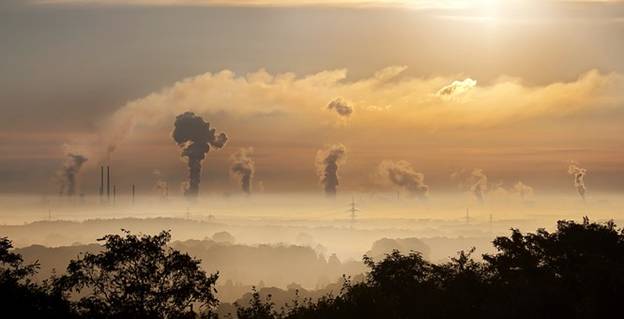Archives
Study: Air Pollution Ages Lungs Faster, Increases Risk of COPD
 Air pollution does a lot more damage to people’s lungs than scientists realized, according to a new study recently published in the European Respiratory Journal. Researchers say that they found that pollution ages lungs more quickly and putting people at higher risk of COPD.
Air pollution does a lot more damage to people’s lungs than scientists realized, according to a new study recently published in the European Respiratory Journal. Researchers say that they found that pollution ages lungs more quickly and putting people at higher risk of COPD.
Lung function declines as a part of natural aging, but exposure to particulate matter pollution ages lungs even faster – and the more pollution people are exposed to, the quicker their lungs age. For each additional five micrograms per cubic meter of particle pollution a person is exposed to on average annually, the lungs showed an equivalent of two years of aging, and a reduction in lung function.
Particle pollution is the mix of solid and liquid droplets in the air, according to the US Environmental Protection Agency, coming from dirt, dust, soot or smoke. It comes from coal- and natural gas-fired plants, cars, agriculture, unpaved roads and construction sites. For people living with air that has more than 10 micrograms per cubic meter of particle pollution, their lungs are much worse off. Among those in the most polluted areas, the number of COPD cases was four times higher than if a person lived with smokers, and half that of people who had been smokers.
COPD, chronic obstructive pulmonary disease, is a series of lung diseases that block airflow and make it difficult to breathe. It's the third leading cause of death in the world. Although many with COPD smoked at one point in their lives, it can also be genetic, and it can be caused by a person's environment.
Researchers surveyed more than 300,000 people and participants were given tests to determine their actual lung function. The study went on between 2006 and 2010. The researchers then conducted multiple tests to see how long-term exposure to higher levels of air pollution was linked to the changes in how people could breathe. They factored for people's occupations that may expose them to pollution and to people's exposure to cigarette smoke.
Air pollution causes inflammation in the lungs, which narrows airways and makes it harder to breathe. Air pollution also increases the risk of heart disease, strokes and lung cancer. The test results were even worse for people living in low-income households because of poorer housing conditions, worse diets and more limited access to healthcare.
"Air pollution had approximately twice the impact on lung function decline and three times the increased COPD risk on lower-income participants compared to higher-income participants who had the same air pollution exposure," said study author Anna Hansell, a professor of environmental epidemiology in the Centre for Environmental Health and Sustainability at the University of Leicester.
The number of COPD cases is expected to increase dramatically over the next 10 years, and the rising levels of pollution will likely play a large role in that.
In the United States, earlier studies showed that 141 million Americans living in counties with unhealthy levels of particle pollution or ozone.




